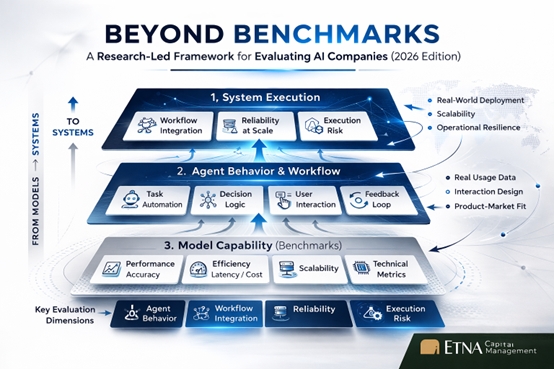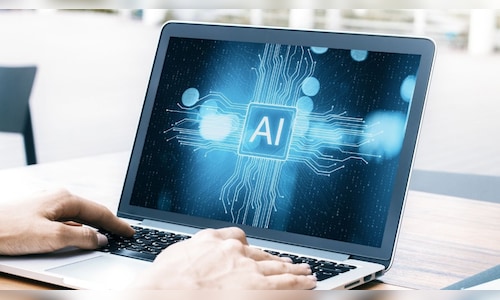By Deepa Krishnan
A persistent buzzword rapidly infiltrating jobs and industries, the resounding popularity of artificial intelligence (AI) heralds an exhilarating era for enthusiasts, marked by extensive experimentation and widespread adoption. In the realm of marketing, a noteworthy shift is underway already, with nearly all (98%) marketers harnessing the power of AI in various capacities.
Amidst the backdrop of the AI in Marketing market projected to surge from $15.84 billion in 2021 to an estimated 107.5 billion by 2028, let’s delve into the upcoming AI-driven marketing trends that every forward thinking marketer must embrace in 2024.
‘Segment-of-One’ marketing: Elevate personalisation, exceed customer expectations and accelerate business growth
“The relentless pursuit of mass will make you boring, because mass means average, it means the centre of the curve, it requires you to offend no one and satisfy everyone.”
– Seth Godin, This Is Marketing: You Can’t Be Seen Until You Learn to See
Instrumental in meeting the escalating consumer demand for personalised interactions, the spotlight this year is on AI tools that are emerging as critical elements for enhanced engagement and retention. By overcoming the limitations of traditional tools, which often incurred high customisation costs or lacked access to comprehensive consumer data, marketers are now empowered to leverage AI for efficient analysis of vast datasets – enabling personalisation at scale and in real time. By using extensive data sets, AI is emerging as every modern marketers’ trusted collaborator in unearthing profound insights – both quantitative as well as qualitative — into every consumer; understanding their sentiment; and engaging each and every one of them through unique yet relevant touch points including personalised campaigns, content, recommendations, and promotions that they are seeking.
But that’s not all. Notably, marketers are experiencing a positive ROI with personalised campaigns, with those excelling in personalisation are generating a remarkable 40% more revenue than their counterparts – underscoring that this trend will not only be key in meeting but exceeding consumers expectations in ways that yield unprecedented growth for businesses this year.
Reactive to proactive: Predictive analytics for optimised decision making
“You have a choice in life. You can either live on purpose according to a plan you`ve set or you can live by accident reacting to the demand of others”
– Michael Hyatt
In the post Covid-19 age of uncertainty, predictive analytics are etching themselves as the cornerstone of data-driven decision-making. Harnessing the capabilities of AI, marketers now possess a comprehensive overview of user behaviour, brand mentions, social media and market trends aggregated from multiple websites, apps, and other sources. This wealth of data signals more than just a technological advancement; it denotes a paradigm shift from a reactive to a proactive mindset – wherein marketers are increasingly empowered in making informed decisions that significantly improve operational efficiency.
This trend is picking up pacing in the hospitality industry as well, with AI adoption helping businesses to comprehensively analyse historical behaviour, booking patterns, and external factors such as events and holidays to predict future demand and accordingly adjust their pricing strategies in real-time to maximise revenue during peak times and optimise rates during slower periods. Additionally, hoteliers can also be seen leveraging generative AI to identify high-value guests and create targeted marketing campaigns – to attract and retain valuable customers. As more businesses adopt and embrace the predictive abilities of AI, forward thinking marketers stand to gain a competitive edge by leveraging the predictive power of AI in crafting strategies that resonate with the dynamic pulse of the market for all months to come.
Unleashing creativity, driving impact: Tapping into the power of AI-generated content
“Artificial Intelligence is the future and the future is here”
– Dave Waters
As content remains king, marketers are getting creative in their use of AI tools – streamlining and tailoring their content strategies to pique consumer curiosity and connect with them in refreshing ways. While NLP tools are being used to refine output with feedback, recommendations, and insights on aspects like writing style, tone, readability, grammar, and SEO; generative AI is being leveraged to generate marketing content that resonates with their target audience – and hence much more likely to optimise engagement and conversions. Going above and beyond traditional ways of using AI, several marketers are experimenting with tools such as AR and VR in conjunction with AI to provide a unique and engaging marketing experience, while also ensuring personalised offerings based on their individual preferences and needs.
In the hospitality industry, hoteliers can be seen experimenting with, for instance, AR content showcasing virtual tours or offering Augmented Hotel Environments – allowing guests to explore the surroundings before or after they make a reservation as well as enticing them to spend more time engaging on the hotel’s website.
The author is head – marketing, India and Southwest Asia at Hyatt
Follow us on Twitter, Instagram, LinkedIn, Facebook






